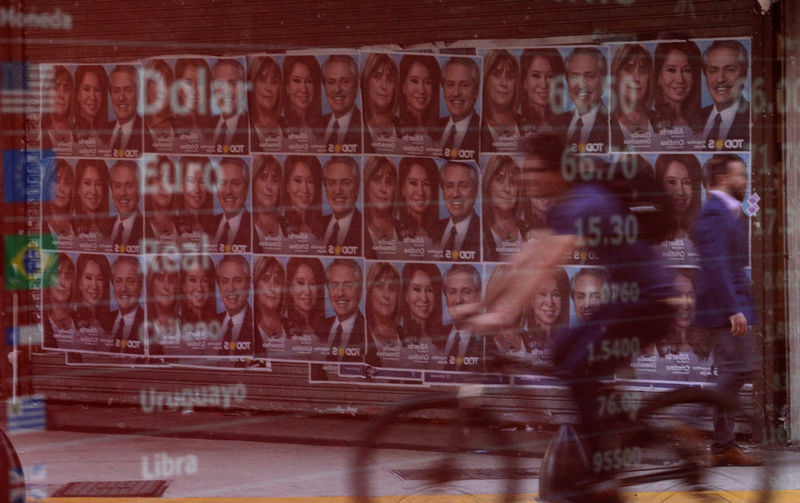By Cassandra Garrison, Hugh Bronstein and Joan Manuel Santiago Lopez
BUENOS AIRES/MISIONES/SALADILLO (Reuters) - In this South American nation stretching from lush jungles in the north to the edge of the Antarctic at its southernmost point, the country's 45 million people are weighing a vote for change ahead of presidential elections on Sunday.
At the heart of the decision is economic hardship that has roiled Latin America's No. 3 economy since the middle of last year. It has hurt President Mauricio Macri, who under pressure had been pushing austerity measures to rein in debt.
What many in Argentina call the "disease" of inflation is running at an annual rate of over 50%; the country has been in recession for most of the last year and the outlook is darkening; job numbers are down and poverty is above 35%.
"The truth is that these last four years were very complicated for the country. At every step we've gone deeper into debt, and the number of poor people has increased," said Mario Volker, 25, currently out of work in the port city capital Buenos Aires.
In the balance is the future of one of the world's top grain exporters, which is facing knife-edge talks with global creditors on about $100 billion in sovereign debt after a tumbling peso currency sharpened fears of a default.
Volker is planning to vote for Macri's main rival, center-leftist Alberto Fernandez, who has brought the country's powerful Peronist political flank to the brink of victory. Polls give him a 20-point lead.
His running mate is Cristina Fernandez de Kirchner, a populist icon with huge support among the poor who ran the country from 2007 to 2015. She remains divisive and is little loved by investors and the important farm sector.
"We don't want Cristina to come back," said Julio Liguori, 70, a clothing store owner in the bread basket town of Saladillo, adding he worried Fernandez de Kirchner - who brought in caps on farm exports and raised taxes during her two terms as president - would wield significant power behind the scenes if elected.
"At some point Alberto Fernandez would have to break with either Cristina or with the farming and business community. He could not be loyal to both at the same time."
FOOD ON THE TABLE
Fernandez and the Peronists, a nebulous political movement born from the decades-ago rule of Juan Peron and his wife Eva Peron - or Evita - have risen in popularity as Macri's star has waned. Their social welfare focus has been an easier sell than the economic frugality that Macri has argued is needed.
"With the previous president that we had, there was work. There was food every day at the table, and today that is missing in many homes and missing in my home too," said Marcia Leites, 31, a mother of four in the poor northeastern province of Misiones.
"I think if we change president, it would be good."
Macri's supporters say he needs more time after inheriting an already weakened economy. His reforms to open the country with trade deals and overseas investment would eventually get the economy going again, they claim.
"I vote for Macri because... you cannot fix a country in four years that Kirchnerism destroyed in 12," said Naura Akil, 46, a finance sector worker in the capital, referring to the three successive terms of Fernandez de Kirchner and earlier her late husband Nestor Kirchner.
Sergio Operti, 58, a car dealer from central Cordoba - a Macri stronghold - said he had previously voted for the conservative leader in 2015 but would likely not do so on Sunday, instead going for a third option like Roberto Lavagna.
"Macri disappointed me because he did things the wrong way around. I think he made great investments in the country that people don't see, and maybe in the future that will serve us, but not now - people have needs today," he said.

"I am a trader and I see it. The need for work and all the small companies that have fallen. That directly influences us - it's like a domino effect."